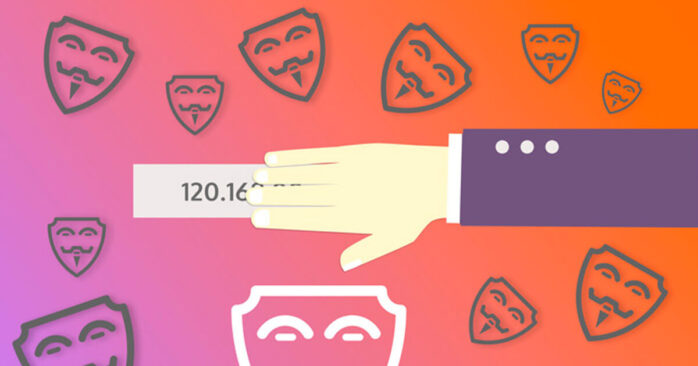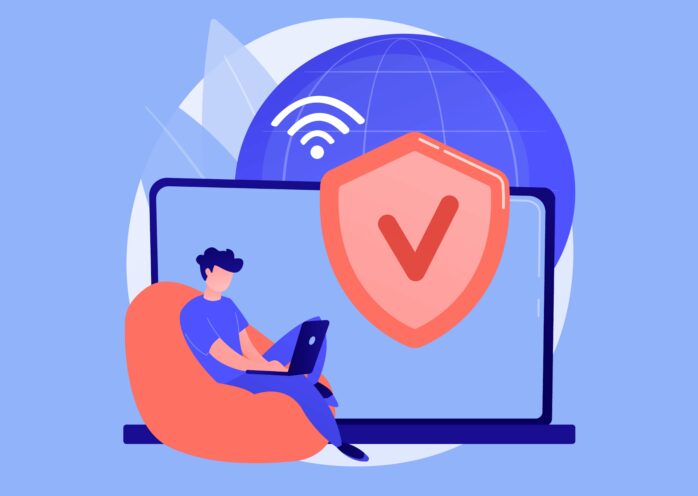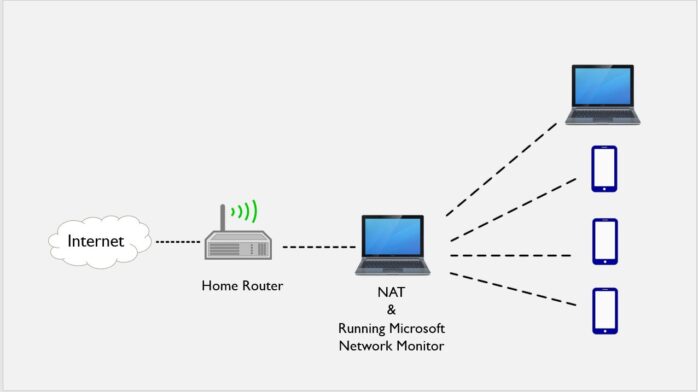
The most common way to hide your IP address is to use a VPN or Virtual Private Network. Your internet traffic routes through an encrypted tunnel, then out through the VPN provider’s public server. This masks your IP address and makes it extremely difficult for anyone else to identify you online. VPN is not the only option, and in this article, we have outlined 7 different effective ways for you to hide your IP Address.
Why Hide Your IP Address?
Maybe you’re surfing on an unsecured wireless network, or maybe you don’t want websites and advertisers to track your every move online. A VPN will also protect you from public Wi-Fi hackers and allow you to access any services that are otherwise blocked based on location.
There are a few reasons people want to hide their IP addresses. The most common reasons are:
Privacy: A lot of online content is unrestricted based on where you are. Hide your IP address to gain access to geo-restricted content and secretly surf the web.
Hacking: Some tech geeks are seeking ways to gain access to devices on a network like them. They can access other devices on the network even if they are password-protected by masking their IP addresses. Don’t do that because it’s illegal. However, understanding how IP addresses work and how to hide yours might help you defend yourself against such attacks.

Effective Ways to Hide IP Address
If you’d like to keep your browsing habits private, here are 7 effective ways that you can hide your IP address so that your online activity can’t be tracked.
1. Use Tor
Using the Tor browser is one effective method. It operates by routing communication via numerous nodes at the same time, making it much more difficult to track back to the user than a standard connection. However, because traffic gets bounced around so often before reaching its destination, this comes at the expense of speed, thus it’s not suitable for bandwidth-intensive applications like streaming videos or video games.

2. Connect to Your Router via Ethernet
If you’re utilizing a Wi-Fi connection, connecting via Ethernet is the simplest approach to mask your IP address. Because most routers use DHCP to assign IP addresses, switching from Wi-Fi to a wired connection is as simple as removing the ethernet cable. When you go online, you’re safe as long as you use a VPN or proxy server.
3. Use a Proxy Server
A proxy server operates as a mediator between your computer and the websites you visit, forwarding all internet data requests through it and allowing you to circumvent any restrictions by hiding your IP address.
There are both free and paid proxies, as well as public and private proxies. While free proxies are enticing since they are free, they should always be avoided because they offer a significant security risk.
Due to the huge demand placed on them by thousands of users, free proxies are usually slow, they frequently collect user data, further risking your privacy, and, most crucially, they can inject advertisements into websites that don’t have them (such as Google). Paid proxies, on the other hand, are unquestionably the best alternative if you require a dependable connection with adequate anonymity and security features.

4. Call Your ISP
Everything you do online is visible to your internet service provider (ISP). Fortunately, many ISPs will gladly grant you a new IP address if you request one. The only problem is that they don’t always make things simple. You may need to phone them and explain your situation and why you require a new IP address.
They may charge you a fee for this service unless you can show that your account has been compromised in some way (like if someone hacked into your computer). If this does not work for you, you may want to try one of the other solutions listed below.
5. Unplug Your Modem
It’s as easy as unplugging your modem for a few minutes to change your IP address. When you re-plug the modem, it will most likely have a new IP address. This is a pretty easy method of masking your IP address, and it may be all you want. If it still doesn’t work, unplug it for 30 seconds and then plug it back in. If you reconnect while your device is still turned on, you can probably end up with the same IP address as before.

6. Use Free/Public Wi-Fi
Using public Wi-Fi is an easy alternative to hide your IP address. Free Wi-Fi in a public place such as a hotel, store, or airport makes it easy for an attacker to install a fake network that will act as a man-in-the-middle to intercept your data. This attack is known as evil twin and it could be very dangerous for you if you enter any sensitive information into the site such as passwords or credit card numbers.
7. Use a NAT Network
A NAT Firewall is an effective solution to hide your IP address on a long-term basis. If you need to get secured and back on your way quickly, this is a good alternative. Unwanted inbound traffic is blocked by a NAT firewall, while all outbound traffic is allowed. This works by using a single gateway device to link your internal network devices to the internet (such as a router). The gateway device is responsible for all data transmission between your network and the internet.
The main disadvantage of this strategy is that it does not work with torrents. It is, nevertheless, worth considering if you are searching for a quick approach to be covered.

Conclusion
Your IP address is the key to your identity on the web. It provides valuable information about you and your location. This data is widely used by various organizations such as advertising agencies, search engines, criminal hackers, and government organizations. Thus, it is of utmost importance to protect your IP address from prying eyes.
The options listed above, from encrypted connections to proxy servers, are effective, and whichever way you use, you won’t have to worry about the safety of your IP address is or who has access to it. According to IPcost, a VPN is without a doubt the greatest solution for keeping your online activities genuinely hidden, but if that doesn’t work for you, we’ve provided seven more options. You may access geo-blocked content and protect yourself from identity theft and online hackers by using one of these services.











